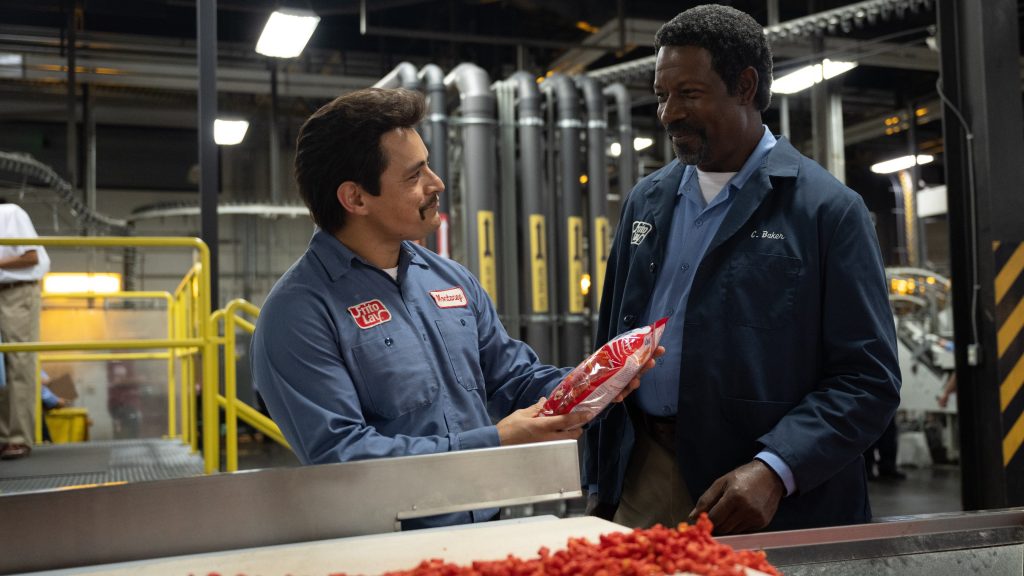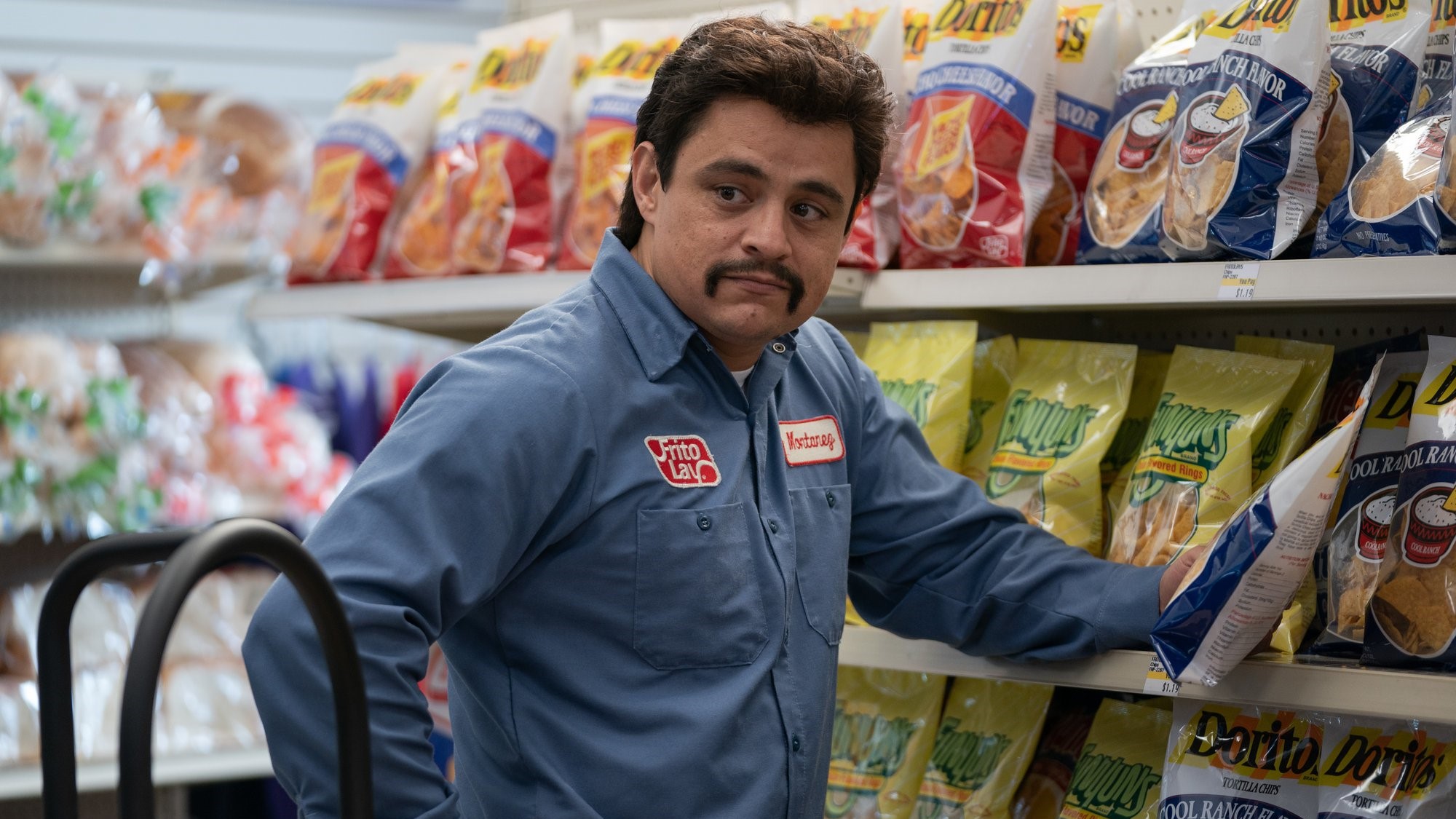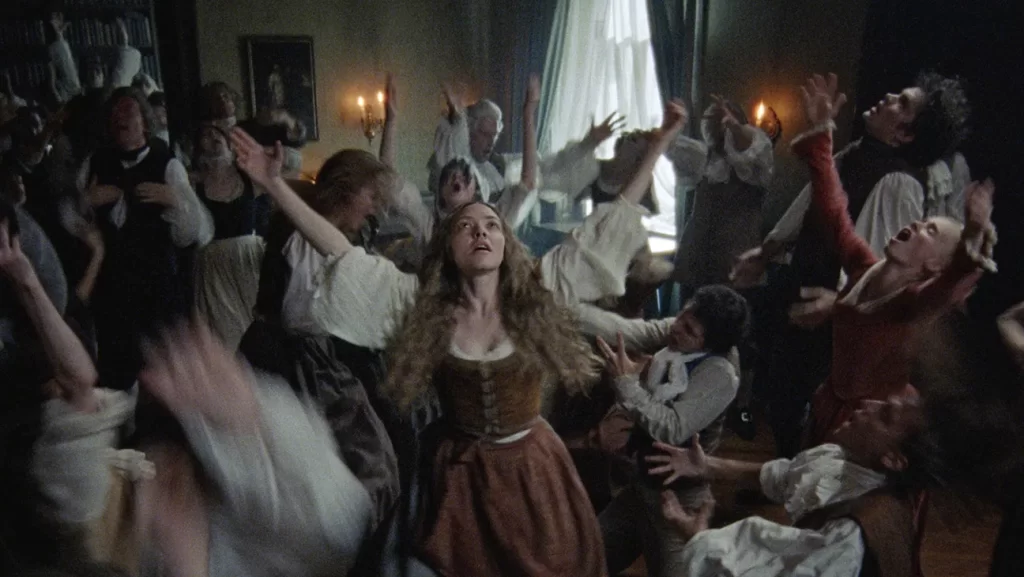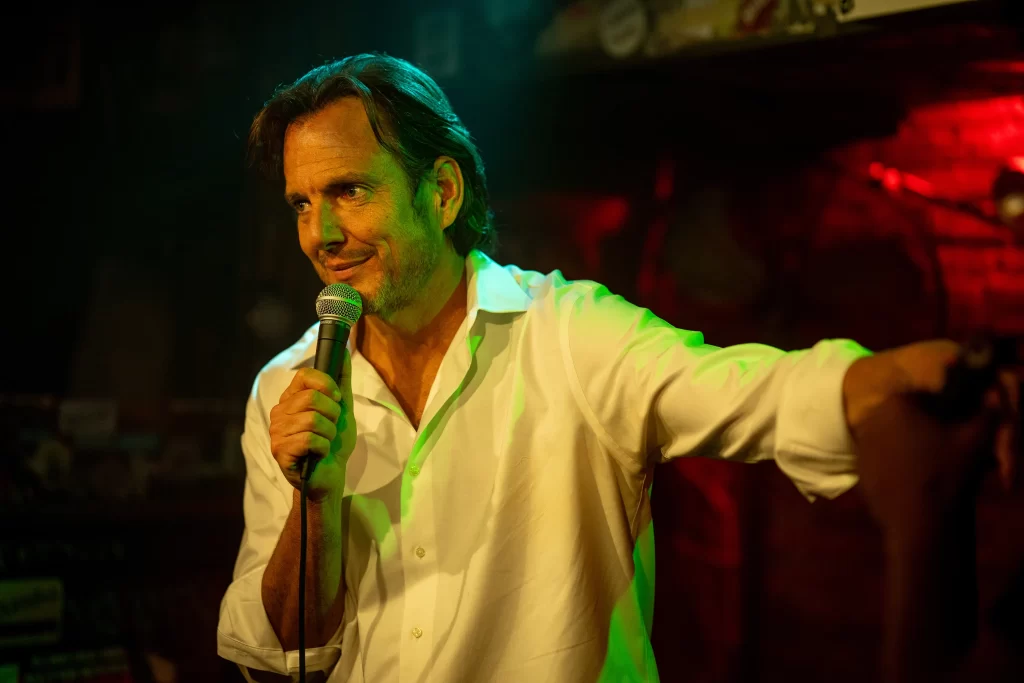As airy and nutritionally devoid as the Frito-Lay fave, Flamin’ Hot is the latest in a string of movies that bring new meaning to the term “branded content.” These films aren’t coming directly from the corporate giants themselves — leave that to other corporate giants like Disney and Amazon — but they do have the feeling of a multi-million-dollar campaign that focuses on the story behind the product, a way to reach consumers who have ad-blockers installed and don’t watch traditional TV with commercials. Did Air make me want to add more Nikes to my collection? Embarrassingly, yes. Did Flamin’ Hot compel me to buy a bag of the ubiquitous Cheetos of the title? Nope. That’s not to say that Flamin’ Hot is unpleasant; it’s not a slog, but it’s surprisingly bland for a movie about a snack that is supposed to be painfully spicy.
Flamin’ Hot is composed of familiar beats in its story of overcoming adversity: Richard “Richie” Montañez (Jesse Garcia) has faced racism for his Mexican-American heritage since he was a child, with early scenes reinforcing his ingenuity and business sense, as well as the prejudice he faced everywhere, from school bullies to the local cops in his California town. As an adult with a loving wife (Annie Gonzalez) and growing family, he realizes that his life as a criminal won’t be enough to support them, so he gets a job at Frito-Lay as a janitor. Though Richie learns the ropes quickly, he can’t get a promotion, until he comes up with an idea for a snack that will appeal to his fellow Latinos, which he takes all the way to the top: Frito-Lay’s president, Roger Enrico (Tony Shalhoub).
Liberties are often taken with biopics and movies based on reality, but Flamin’ Hot utilizes an especially loose approach to most accounts of how Flamin’ Hot Cheetos were really created. You’ll note that the movie’s official website says, “FLAMIN’ HOT is the inspiring story of Richard Montañez…” with the adjective “true” conspicuously missing from the description. Montañez did ascend the ranks at Frito-Lay, but he doesn’t appear to have played a role in creating Flamin’ Hot Cheetos. He has claimed to have done so in motivational speeches and in his book, A Boy, A Burrito and A Cookie: from Janitor to Executive, but there’s no evidence he actually did.

Yet what this does prove is Montañez’s gift for marketing. He isn’t just able to sell snacks; he also is able to sell his own narrative to be more interesting. Would the story of Flamin’ Hot have been as inspirational if it had just focused on Montañez’s evolution from a gang member to vice president at a multinational company? Honestly, probably not, but it’s the cinematic equivalent of coating a plain corn puff in spicy powder.
Flamin’ Hot marks the feature directorial debut of Eva Longoria, after helming episodes of shows like Gordita Chronicles, Black-ish, and Jane the Virgin. It’s not without style — there are some nice touches, like a close-up of Cheeto-dust-covered fingers — but there’s also not a ton to distinguish it. This is a fine first effort, but it never takes even the smallest of risks, an odd choice for a movie about a man full of ambition and innovation.
Flamin’ Hot feels like a TV movie, both in its construction and in its efforts to be as broadly appealing and unchallenging as possible. The bad guys are immediately recognizable, full of sneers and racist epithets, and Garcia’s Richie is charming, inviting the audience to root for him as he tries to turn his life around and climb the corporate ladder amidst pervasive racism and classism. Nothing surprises here, leaving the viewing experience as comforting and filling as junk food. There’s been outcry over some great movies going direct to streaming, but this won’t get that complaint. It feels made to watch on a couch, with equal attention paid to the screen and the mindless snacking.
C-
“Flamin’ Hot” is on Hulu and Disney+ Friday.



